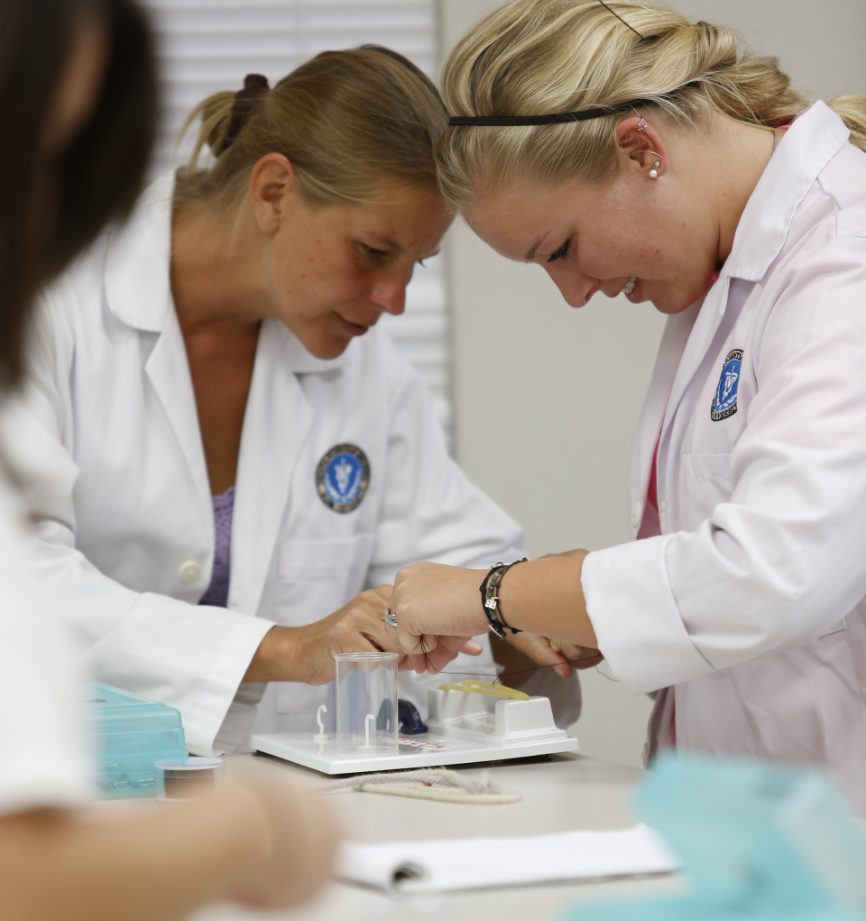GRADUATE PROGRAMS
Be part of research that affects animal and human health on a global scale. Learn to tackle diverse issues through research and advocacy that aim to solve real-world problems.
The window to submit your application ends in…
DAYS
HOURS
MINUTES
SECONDS
Apply Now to start earning your DVM in January!
GRADUATE PROGRAMS
Be part of research that affects animal and human health on a global scale. Learn to tackle diverse issues through research and advocacy that aim to solve real-world problems.
GRADUATE PROGRAMS
Pursue your studies in areas such as food safety, vector-borne diseases, zoonotic infections, conservation medicine, and more. Work alongside faculty to learn research methods and gain exposure to projects that impact humans, animals, and their shared environment.
OUR GRADUATE PROGRAMS INCLUDE:
- Graduate Certificate in One Health
- Master of Science (MSc) in One Health
- Master of Science (MSc) by Research
- Doctor of Philosophy (PhD) by Research
START DATES
May 4, 2026
September 7, 2026
January 11, 2027
.png?v=07072022014521)
ONE HEALTH PROGRAMS
Ross Vet offers two interdisciplinary online programs designed to equip you with an in-depth understanding of One Health. The Graduate Certificate in One Health and MSc in One Health programs accept students for each January, May, September start.
Graduate Certificate in One Health:
- 100% online coursework with no mandatory login times
- Flexible 13-credit curriculum lets you take courses gradually for up to 3 years of study
- Earned credits can later be applied towards the MSc in One Health degree program
- Interdisciplinary coursework with students from a wide variety of backgrounds
MSc in One Health:
- 100% online coursework with no mandatory login times
- Flexible learning options: study for up to three years part-time
- Optional 1-week residency on Ross Vet’s St. Kitts campus
- Capstone research project provides an opportunity to put One Health concepts into real-world practice
RESEARCH PROGRAMS
Earn your MSc or PhD by Research to advance your education, contribute to our shared knowledge, and improve the health and wellbeing of animals, people, and the planet.
MSc by Research:
- Undertake independent research, learn the latest techniques, and advance your veterinary research knowledge
- Flexible learning options: study one year full-time or up to two years part-time
- Can be done as a stand-alone MSc or as a dual degree alongside your DVM
PhD by Research:
- Pursue original, faculty-supervised research and prepare to present your results in peer-reviewed publications
- Study for three years full-time or up to six years part-time

GRADUATE
Our Graduate programs are well-suited for those working in public health, veterinary medicine, human medicine, environmental/conservation health, biomedical sciences and research, and education.
By pursuing a graduate program at Ross Vet, you will have access to our four research centers, allowing you to focus on an area of interest such as food safety, vector-borne diseases, zoonotic infections, ecosystem health, and more.
Because of our location on the tropical island of St. Kitts, researchers are also presented with a unique ecosystem and firsthand opportunities to explore exotic marine and wildlife. Be it working with sea turtles to public health of invasive species to the control and prevention of tropical disease, few schools offer an opportunity to pursue these areas of focus just steps from campus.
All graduate students may choose to pursue their research remotely with regular check-in with a Ross Vet faculty advisor.
Our DVM students may undertake the MSc by Research alongside their DVM program. This can be done either full-time via an added semester (11 semesters total) or part-time through an extra three semesters (13 semesters total).
One Health is a collaborative, transdisciplinary approach to understanding the interconnectivity of, and achieving the best health results for, humans, animals, and the environment. This approach calls for veterinarians, scientists, medical doctors, farmers, and environmental professionals to work alongside governments, NGOs, communities, and the public to address global issues related to One Health, such as the spread of zoonoses, food safety and security, species extinction, and habitat loss.
DOES ROSS VET REQUIRE THE GRE?
DOES ROSS VET REQUIRE THE GRE?
The GRE is not required to apply to Ross Vet. However, applications that include the GRE, regardless of GRE score, will be given priority in the review process. At Ross Vet, we know there is more to your story than GPA and GRE, and that’s why we take into account each applicant’s unique attributes and experiences in addition to important academic elements, such as grade trends over time. Our holistic review process helps ensure every applicant is thoroughly evaluated as an individual and has an opportunity for a fair shot at gaining admission to the DVM program.. Please visit our website for the most up-to-date information regarding GRE.
Will I still be able to use Grad PLUS loans after July 1, 2026?
Will I still be able to use Grad PLUS loans after July 1, 2026?
The new legislation eliminates the Grad PLUS loan program for graduate and professional students, including those in veterinary medicine. Future borrowing will be limited to Direct Unsubsidized Loans, which have lower annual and aggregate limits.
How will these changes affect current veterinary students?
Students who have taken out loans before July 1, 2026, are generally exempt from the new borrowing limits for up to three academic years or until they complete their program, whichever comes first.
What are the new borrowing limits for veterinary students starting after July 1, 2026?
What are the new borrowing limits for veterinary students starting after July 1, 2026?
Starting July 1, 2026, veterinary students will face new borrowing limits on federal student loans. They will be able to borrow up to $50,000 annually through Direct Unsubsidized Loans. Over the entire course of their veterinary education, the aggregate borrowing limit will be capped at $200,000. Additionally, there is a lifetime borrowing limit of $257,500 that applies to all federal student loans combined.
What if my veterinary school’s cost of attendance exceeds these limits?
If your total cost of attendance is higher than the federal loan limits, you may need to look into other ways to cover the difference, such as private loans. Our Office of Student Finance is here to help. Email [email protected] to discuss your options and create a plan that fits your financial situation.
REQUIREMENTS
You need a bachelor’s degree (or international equivalent) in biological, biomedical, environmental, or ecological sciences, or a professional veterinary or medical qualification.
A high level of English proficiency is required, and applicants whose native language is not English will be asked to provide evidence of proficiency.

"As veterinary professionals, we are sometimes the first ones being introduced to issues of zoonotic diseases and food scarcity. From an agricultural or farmer’s perspective, veterinary health is sometimes at the forefront of One Health issues. Veterinary professionals should be key members of One Health concepts and putting those into practice."
Elizabeth Delage, MSc '24

P.O Box 334 Basseterre St. Kitts West Indies | Phone: +1-869-465-4161 | Admissions (US toll free): 855-ROSS-Vet
Admissions (international): +1-732-509-3042 | Fax: +1-869-465-1203 | [email protected] | Privacy Statement
Academic Catalog | Student Handbook
*Ross University School of Veterinary Medicine confers a Doctor of Veterinary Medicine (DVM) degree, which is accredited by the American Veterinary Medical Association Council on Education (AVMA COE), 1931 N. Meacham Road, Suite 100, Schaumburg, IL 60173, Tel: 800.248.2862. For more information please visit https://www.avma.org/.
*Not available to residents of Alabama
The AVMA COE uses defined standards to evaluate veterinary medical education programs, including facilities, clinical resources, curriculum, faculty, student outcomes and research programs. The standards are interpreted and applied by the AVMA COE-accredited veterinary medical education programs in relation to its mission.
©2026 Ross University School of Veterinary Medicine. All rights reserved.
